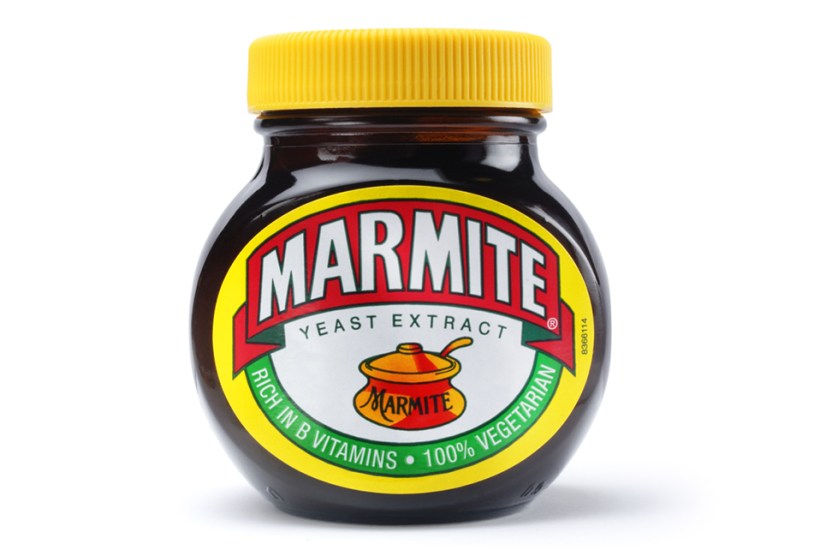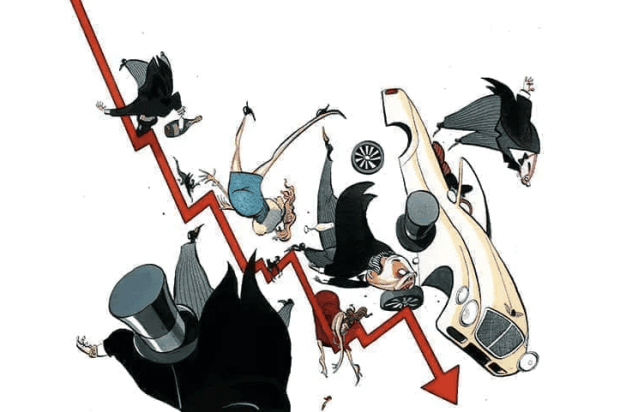Does a change of chief executive at Unilever, the British-based shampoo-to-Marmite multinational, signal the demise of the fashion for corporate ‘purpose’? Alan Jope, who steps down in July, drew scorn when he declared that every brand in his portfolio should ‘stand for something more important than just making your hair shiny… or your food tastier’. His reputation was also dented by the failure of a £50 billion bid for the consumer arm of the pharma giant GSK – but it was his preaching about sustainability and purpose while Unilever’s performance continued to flag that ultimately cheesed off his shareholders.
Jope’s departure after four years in post is not as dramatic as that of Emmanuel Faber of the French foods group Danone, who lasted just nine months after declaring Danone an entreprise à mission or ‘purpose-driven company’. And for a while many other corporate leaders also put ‘purpose’ into every speech and press release – including NatWest chief Dame Alison Rose, who in 2020 wrote of ‘building a Purpose-led bank’ with a capital P.
The move to set social purpose and respect for the planet as corporate objectives alongside or ahead of profit and shareholder value was in part a genuine rethinking of the role of capitalism. It was also a response to pressure from shareholders and consumers to address ‘environmental, social and governance’ (ESG) issues. By now, however, most public companies have adopted targets for emission reductions, workforce welfare and boardroom diversity that cover the ESG bases – while many are also battling for survival in disrupted post-pandemic markets.
Arguably, ‘purpose’ has had a positive impact on corporate attitudes – but that purpose having been fulfilled, we’re hearing a lot less about it as businesses grapple with more urgent challenges. Jope’s successor at Unilever, Hein Schumacher, is described by former Asda boss Allan Leigh-ton as ‘ESG savvy but in a pragmatic and commercial way’. That should make him the right sort of chief for the times.
Flybe’s last flight
Record quarterly profits and robust summer prospects for Ryanair – but for Flybe, the relatively genteel and well-liked regional airline, a last flight to oblivion. The latter’s best chance of long-term survival was the possibility that it might have become a feeder for Virgin Atlantic, which took a stake in it in 2019. When that didn’t happen, it collapsed – as ‘aviation’s first Covid victim’ – in March 2020, but was rescued by Cyrus Capital, a New York-based distressed-investment specialist.
When it finally took off again in April last year, I described the revival as ‘evidence for the theory that brands can have several lives so long as customers actually like them’. But not in this case: losing £5 million a month on routes from Birmingham, Belfast and Heathrow, Flybe defied my optimism and has gone down for what must surely be the last time.
Its only significant assets for administrators to sell are 86 operating slots per week at Heathrow – which might once have traded for ‘tens of millions of pounds’, according to the Financial Times, but have uncertain value today. Let me not sound too negative, but you’d have to be braver than Cyrus and bolder than Ryanair to want to stockpile landing capacity at the least-loved airport in what the IMF says will be the world’s worst-performing major economy this year. Maybe the slots can be auctioned to commuters as park-and-ride spaces.
A through-run at last
On a brighter transport-related note, anyone for a picnic through-run on the Elizabeth line on Sunday 21 May? That date has been set for the finale of the staggered opening of the £20 billion trans-London project formerly known as Crossrail. The new line has exceeded passenger number expectations so far, but even this long-delayed completion deadline is subject to a residual glitch with ‘auto-reversing’ at Paddington – in which trains have to manoeuvre themselves backwards while their human operators trot to the other end in order to drive them in the opposite direction.
If you’re ready to risk that adventure, we might also catch a glimpse of the hub station under construction at Old Oak Common in west London, where rumours say the HS2 line from Birmingham may have to terminate if funds are too short for it to reach Euston. Chancellor Jeremy Hunt’s rebuttal, that he could foresee ‘no conceivable circumstances’ in which such a shortfall could happen, only reinforced sceptics’ belief that it’s exactly the scenario a leaker had just spotted on a Treasury whiteboard.
Dave deserves better
Have you seen Bank of Dave, the Netflix hit film starring Rory Kinnear that retells the story of Dave Fishwick, a Burnley motor trader who set up a lending business to help other small entrepreneurs in his depressed community? Deborah Ross (The Spectator, 21 January) found ‘pockets of charm’ in it – but overall, I’m sorry to tell you, Bank of Dave is utter hogwash. Real-life Dave’s crusade to create Burnley Savings and Loans Ltd (founded in 2011, £30 million lent so far, applying to be a regulated bank) is turned into a north-vs-south, City-vs-decent-folk feelgood fairy tale in which every nuance of the financial world is mistold. The Crown’s treatment of the royal family looks scrupulously accurate by comparison.
That’s a pity, firstly because – as one senior Burnley citizen tells me – Fishwick is ‘a good thing for the town [who] doesn’t deserve to have his compelling story trivialised’. And secondly because beneath Bank of Dave’s shameless froth is a worthwhile point: every town still needs at least one high-street bank that lends willingly and knowledgeably to local businesses, just as it needs a post office, a library, a fishmonger, an undertaker and a proper vicar. There’s a more thoughtful film to be made on that theme, even if it’s never going to trend on Netflix.
Got something to add? Join the discussion and comment below.
Get 10 issues for just $10
Subscribe to The Spectator Australia today for the next 10 magazine issues, plus full online access, for just $10.
You might disagree with half of it, but you’ll enjoy reading all of it. Try your first month for free, then just $2 a week for the remainder of your first year.















Comments
Don't miss out
Join the conversation with other Spectator Australia readers. Subscribe to leave a comment.
SUBSCRIBEAlready a subscriber? Log in